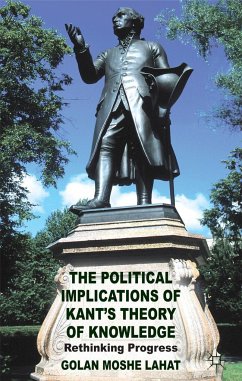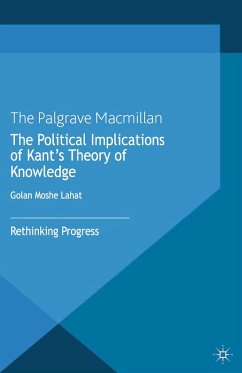
Policy Agendas in British Politics
Versandkostenfrei!
Versandfertig in 6-10 Tagen
Weitere Ausgaben:

PAYBACK Punkte
19 °P sammeln!





Using a unique dataset spanning fifty years of policy-making in Britain, this book traces how topics like the economy, international affairs, and crime have shifted in importance. It takes a new approach to agenda setting called focused adaptation, and sheds new light on key points of change in British politics, such as Thatcherism and New Labour.
Peter John is Professor of Political Science and Public Policy, University College London, UK. Anthony Bertelli holds the C.C. Crawford Chair in Management and Performance, School of Policy, Planning and Development and the USC Gould School of Law, University of South Carolina, USA. Will Jennings is Reader in Politics, University of Southampton. Shaun Bevan is Research Fellow at the Mannheim Centre for European Social Research (MZES), University of Mannheim, Germany.
Produktdetails
- Comparative Studies of Political Agendas
- Verlag: Palgrave Macmillan / Palgrave Macmillan UK / Springer Palgrave Macmillan
- Artikelnr. des Verlages: 978-0-230-39039-3
- 2013 edition
- Seitenzahl: 241
- Erscheinungstermin: 8. Juli 2013
- Englisch
- Abmessung: 218mm x 140mm x 23mm
- Gewicht: 424g
- ISBN-13: 9780230390393
- ISBN-10: 0230390390
- Artikelnr.: 37744551
Herstellerkennzeichnung
Libri GmbH
Europaallee 1
36244 Bad Hersfeld
gpsr@libri.de
Policy Agendas in British Politics presents a novel overview of British politics and policy making across the past two generations. The authors carefully assess different depictions of the policy process, including incrementalism, partisan control theories, policy network theory, punctuated equilibrium, and the impact of particular leaders, and confront these theoretical approaches with a comprehensive and novel database constructed with painstaking work over the past many years. The result is a new understanding of the dynamics of British politics, one that tests rather than assumes the impact of such things as changes in Prime Ministerial leadership, external shocks, or institutional design. Further, the work allows the dynamics of
Mehr anzeigen
British policy development to be put into a broad comparative perspective. The result of this impressive theoretical and empirical work is a new understanding of how the British government has evolved from 1945 to 2010. The impressive empirical work, combined with careful theorizing and attention to previous works of many types will guarantee a wide and well deserved audience in Britain and beyond.
Frank R. Baumgartner, Department of Political Science, University of North Carolina at Chapel Hill, USA
A new and innovative lens through which to analyse and understand policy prioritisation in the UK since 1945: new in its heuristic of 'focused adaptation', new in its dataset, new in its use of change point analysis, and new in its challenges to existing academic orthodoxies about policy stability and change. New is good.
David Judge, Department of Government, University of Strathclyde, UK.
This book is a very innovative and carefully executed piece of scholarship: a careful analysis of the Queen's Speech as a means of exploring policy agendas has not been undertaken before. The model of focused adaptation provides an interesting and potentially very useful addition to existing theoretical frameworks. It represents a valuable addition to the public policy literature.
Wyn Grant, Department of Politics and International Studies, University of Warwick, UK.
Frank R. Baumgartner, Department of Political Science, University of North Carolina at Chapel Hill, USA
A new and innovative lens through which to analyse and understand policy prioritisation in the UK since 1945: new in its heuristic of 'focused adaptation', new in its dataset, new in its use of change point analysis, and new in its challenges to existing academic orthodoxies about policy stability and change. New is good.
David Judge, Department of Government, University of Strathclyde, UK.
This book is a very innovative and carefully executed piece of scholarship: a careful analysis of the Queen's Speech as a means of exploring policy agendas has not been undertaken before. The model of focused adaptation provides an interesting and potentially very useful addition to existing theoretical frameworks. It represents a valuable addition to the public policy literature.
Wyn Grant, Department of Politics and International Studies, University of Warwick, UK.
Schließen
Für dieses Produkt wurde noch keine Bewertung abgegeben. Wir würden uns sehr freuen, wenn du die erste Bewertung schreibst!
Eine Bewertung schreiben
Eine Bewertung schreiben
Andere Kunden interessierten sich für













